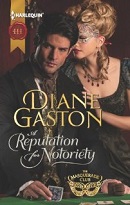In honor of the USA’s Independence Day, here are some of the funniest or most interesting period quotes I could find (mostly British) about the American Revolution:
 Tom Paine, 1776: England, since the conquest, hath known some few good monarchs, but groaned beneath a much larger number of bad ones; yet no man in his senses can say that their claim under William the Conqueror is a very honorable one. A French bastard landing with an armed banditti, and establishing himself king of England against the consent of the natives, is in plain terms a very paltry rascally origin.
Tom Paine, 1776: England, since the conquest, hath known some few good monarchs, but groaned beneath a much larger number of bad ones; yet no man in his senses can say that their claim under William the Conqueror is a very honorable one. A French bastard landing with an armed banditti, and establishing himself king of England against the consent of the natives, is in plain terms a very paltry rascally origin.

Lady Sarah Lennox, 1776: In short, I think there is no deciding who is precisely wrong and who is precisely right. Only two things, I think, won’t bear dispute: 1st, that those who cause most lives to be lost are the worst people; secondly, that the Bostonians, being chiefly Presbyterians and from the north of Ireland, are daily proved to be very, very bad people, being quarrelsome, discontented, hypocritical, enthusiastical, lying people.
Tom Paine, 1776: The colonies have manifested such a spirit of good order and obedience to continental government, as is sufficient to make every reasonable person easy and happy on that head.
Lady Sarah Lennox, 1776: I grow a greater rebel every day upon principle.
British Colonel Allan Maclean, 1777: Washington this whole winter never had more than 7,000 men in the Jersies, where we had 16,000, yet we have been tossed and kicked about most amazingly, all our forage parties constantly attacked, and tho’ we generally beat them we lost a great many good men.

James Boswell, writing to Samuel Johnson, 1778: What do you say to Taxation no Tyranny, now, after Lord North’s declaration, or confession, or whatever else his conciliatory speech should be called? I never differed from you in politicks but upon two points,–the Middlesex Election, and the Taxation of the Americans by the British Houses of Representatives. There is a charm in the word Parliament, so I avoid it. As I am a steady and a warm Tory, I regret that the King does not see it to be better for him to receive constitutional supplies from his American subjects by the voice of their own assemblies, where his Royal Person is represented, than through the medium of his British subjects.
Samuel Johnson, 1778: I am willing to love all mankind, except an American.

William Cowper, 1783: On the other hand, the Americans, who, if they had contented themselves with a struggle for lawful liberty, would have deserved applause, seem to me to have incurred the guilt of parricide, by renouncing their parent, by making her ruin their favorite object, and by associating themselves with their worst enemy, for the accomplishment of their purpose.
So, what are your reactions? Do you find Lady Sarah Lennox’s prejudice against Presbyterians as bizarre as I do? How about Johnson’s loathing for all Americans? Do you agree with Paine that William the Conqueror gave the English monarchy a “very paltry rascally origin”?
Happy Fourth of July to our American readers!
Cara
Cara King — www.caraking.com
MY LADY GAMESTER — Booksellers’ Best Finalist for Best Regency of 2005!

 As I was thinking about birthdays, I thought about Regency period books, and realized I hadn’t read about many birthday celebrations (besides the reigning monarch’s, but that’s a special case), although they must have existed. For the research wonks out there (Amanda? Diane? the rest of the Riskies? Anyone else?), what were the common birthday practices? Did people get presents? Was there cake? Pin the tail on the Prinny?
As I was thinking about birthdays, I thought about Regency period books, and realized I hadn’t read about many birthday celebrations (besides the reigning monarch’s, but that’s a special case), although they must have existed. For the research wonks out there (Amanda? Diane? the rest of the Riskies? Anyone else?), what were the common birthday practices? Did people get presents? Was there cake? Pin the tail on the Prinny?







